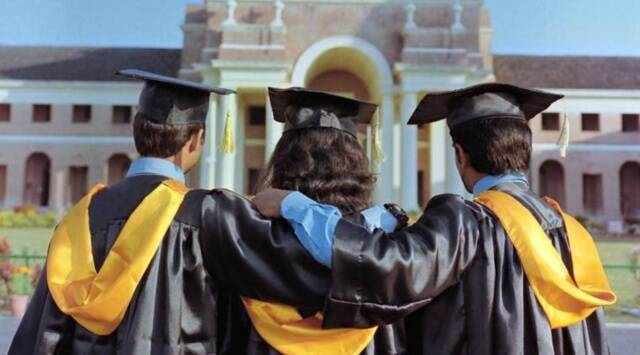A joint task committee comprised of stakeholders from the United States and India has suggested the establishment of specialised offices within their respective diplomatic missions at a time when India is set to allow foreign institutions access. These offices will assist worldwide universities in setting up branch campuses in each other's countries.

This preliminary advice is one of the achievements of the joint task team, whose efforts and suggestions were acknowledged in a joint statement made Friday following Prime Minister Narendra Modi's meeting with US President Joe Biden.
Pennsylvania State University president Neeli Bendapudi, the University of Illinois Urbana-Champaign chancellor Robert J. Jones, University of California San Diego chancellor Pradeep K. Khosla, University at Buffalo President Satish K. Tripathi, and Johns Hopkins University provost and senior vice president for Academic Affairs Sunil Kumar (who is set to become Tufts University president on July 1) represented the American members of the committee. According to the joint statement, the Indian Institutes of Technology (IITs) were on the Indian side. This committee was entrusted with investigating new areas of collaboration and "new models of engagement" between US and Indian institutions.
"Build the front doors"
In order to attract and retain international students, the task force has suggested that both countries require a coordinated effort. "The time has come for a comprehensive international education strategy." A new age of academic collaboration will necessitate both countries' embassies 'building the front doors to each other's countries. "Each diplomatic outpost should establish a dedicated liaison office to assist foreign universities in navigating the myriad legal hurdles required to establish nonprofit academic centres or satellite campuses in-country, eliminating the need to work through private consultancies," according to the interim report.
The establishment of joint research institutes focused on societal and scientific "grand challenges," as well as increased people-to-people exchanges between higher education institutions in India and the United States, are among the interim recommendations mentioned in the White House's joint statement released on Friday.
The statement welcomed the proposal to set up "Indo-US Global Challenge Institutes" that will help increase collaboration between researchers in the US and India on challenges of interest to both countries, such as the health of semiconductors, sustainable agriculture, clean energy, health and pandemic preparedness, and emerging technologies.
Both governments will launch a funding call for the aforementioned institutes through their respective science agencies. According to the proposal, they will get equal support from government and private sources in each country. In both countries, anchor institutes for each "grand challenge" are to be established.
Increase in the number of records
This announcement comes amid a record growth in the number of Indians studying in the United States. According to the statement, Indians are set to quickly overtake Chinese students as the largest international student cohort in the United States, with their numbers increasing by 20% just last year.
This task force's interim report, released on Thursday, has nine recommendations. Aside from joint research institutes, it has suggested increasing student-based research collaboration and expanding internship and apprenticeship possibilities for Indian and American undergraduate and graduate students, as well as post-doctoral researchers.
It has also suggested that Indian students, scientists, and exchange visitors be granted multi-year, multiple-entry visas with the option of stateside renewal in order to jump-start faculty exchanges, increase meeting participation, and speed up student registration.
As envisioned by our leaders, the @EduMinOfIndia will work to set up Indo-US Global Challenge Institutes to deepen research partnerships and people-to-people exchanges in areas such as semiconductors, sustainable agriculture, clean energy, health and pandemic preparedness, and emerging technologies.

